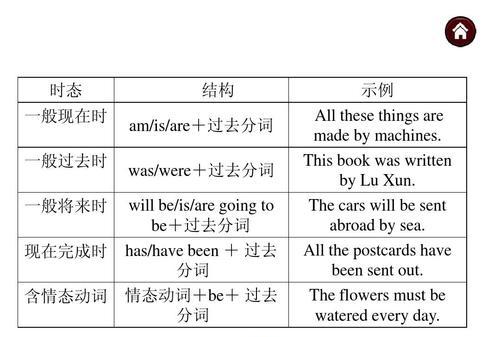英语语法中的情态动词用于表达意愿、建议、推测、承诺、能力、允许等情态,常见的有can、could、may、might、should、shall、will、would等。在使用时,需要注意其用法和时态的搭配。例如,现在时态中常用can、may、must、shall、will等;过去时态中常用could、might、should、would等;将来时态中常用shall、will等;完成时态中常用could、might、should、would等。

现在时态
在现在时态中,情态动词的用法相对简单。常用的情态动词有can、may、must、shall、will等。例如:
- I can speak English fluently.(我能说一口流利的英语。)
- You may leave now.(你现在可以离开了。)
- He must be busy.(他一定很忙。)
- We shall meet at the park.(我们将在公园见面。)
- They will arrive at the airport at 6pm.(他们将在下午6点到达机场。)
过去时态
在过去时态中,情态动词的用法稍微复杂一些。常用的情态动词有could、might、should、would等。例如:
- He could play the guitar when he was young.(他年轻时会弹吉他。)
- She might have left the party early.(她可能早就离开了派对。)
- You should have listened to your parents.(你应该听你的父母的话。)
- I would always forget my keys.(我总是会忘记我的钥匙。)
将来时态
在将来时态中,情态动词的用法也比较简单。常用的情态动词有shall、will等。例如:
- They will be studying abroad next year.(他们明年将会出国留学。)
- She shall inherit the fortune from her grandfather.(她将会继承爷爷的财产。)
完成时态
在完成时态中,情态动词的用法也稍微复杂一些。常用的情态动词有could、might、should、would等。例如:
- I could have done better on the exam.(我考试可以做得更好。)
- He might have gone to the wrong address.(他可能去了错误的地址。)
- She should have finished the project by now.(她现在应该已经完成了这个项目。)
- We would have missed the train if we hadn't run.(如果我们没有跑,我们就会错过火车。)

